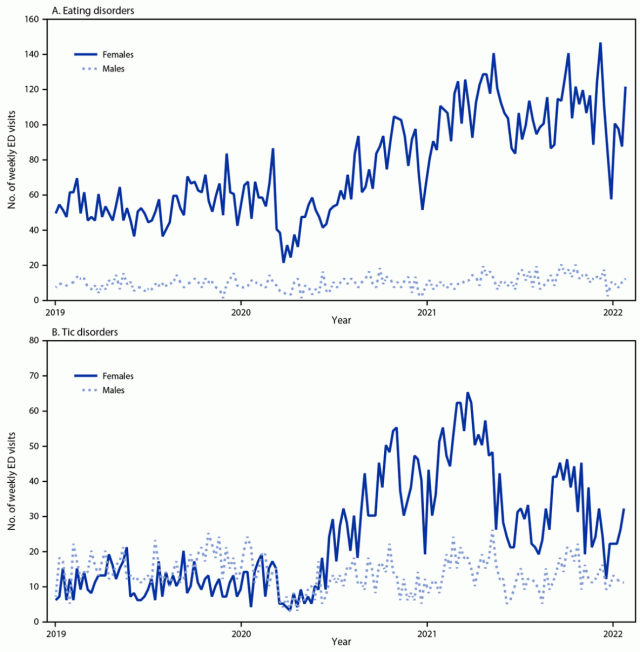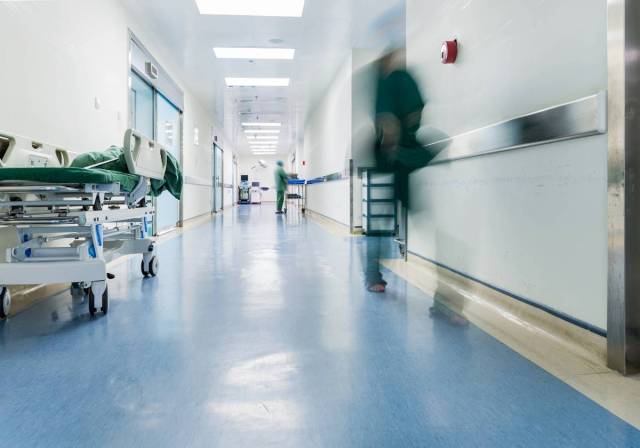If there’s one thing we’ve learned during the pandemic, is that our children have navigated some tough stuff. Aside from the prolonged physical separation from family, friends, school and activities, we are just now learning of the many mental and emotional effects the last few years have dealt us.
The CDC recently released a new report on the rise of pediatric emergency department visits associated with mental health and the findings are a little shocking. To start, adolescent females 12 to 17 had more weekly visits for 2020, 2021 and Jan. 2022 for a variety of mental health conditions (MHC’s) compared with 2019. The MHC’s included issues like tics, anxiety, obsessive-compulsive disorders, trauma and stressor-related and each year had one common condition: eating disorders.
So what all does that mean? Like many of us suspected, the added stress during the pandemic is a likely cause, with its many factors like emotional distress, changes in food availability and a lack of consistent daily routines.

photo: CDC
Allison Chase, PhD, an eating disorder specialist and clinical psychologist with Eating Recovery Center, shares with Healthline that “Eating disorders can develop anytime. When you add COVID stress and uncertainty to the mix, the combination can be disastrous.”
In addition to the copious amounts of social distancing, teens consumed far more social media than usual. Erin Parks, PhD, a clinical psychologist and the chief clinical officer at the virtual eating disorder treatment provider Equip, states that “Research recently emerged showing how social media can exacerbate poor body image, promote diet culture, and trigger eating disorders.”
It should also be noted that while there was an increase in visits specifically related to both eating and tic disorders, both of these conditions can co-occur with anxiety, depression, and OCD. So the discussion turns to: how can we support our teens during this seemingly never-ending pandemic?
The CDC report shares that early identification, prevention, and intervention is key to helping the mental health of our adolescents. That can include:
- Making an appointment with your pediatrician or primary care physician.
- Learning about eating disorders via the National Eating Disorder Association, Project HEAL, the National Association of Anorexia Nervosa and Associated Disorders, FEAST
- Validate all feelings, struggles, and show support
- Handle conversations with curiosity, avoiding judgment and criticism
- Reinforce that eating disorders are brain-based, biopsychosocial illnesses and not a choice
- Don’t neglect your own mental and physical health
RELATED STORIES
8 Things You Can Do to Help Ukrainian Families Right Now
You Can Get a Pep Talk from Kindergartners by Calling This New Hotline
LinkedIn’s New Feature Will Normalize Career Breaks for Parents











